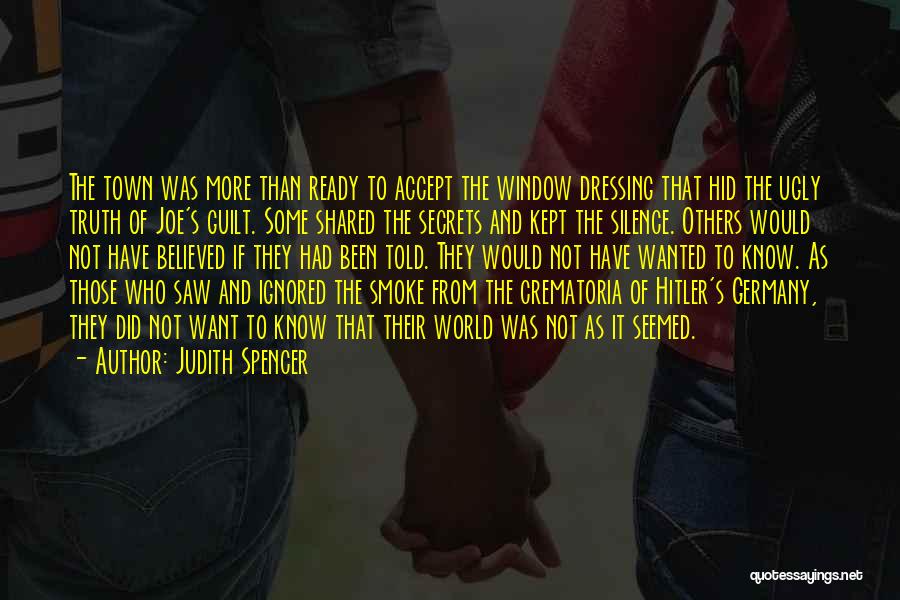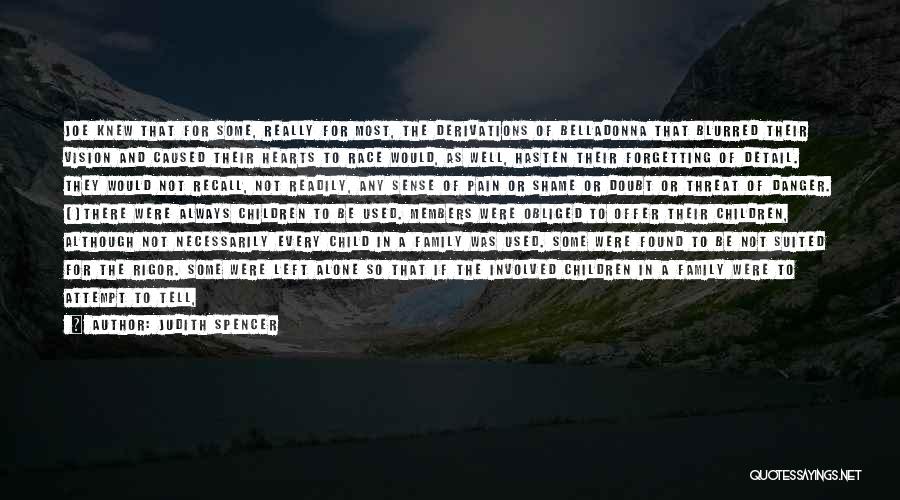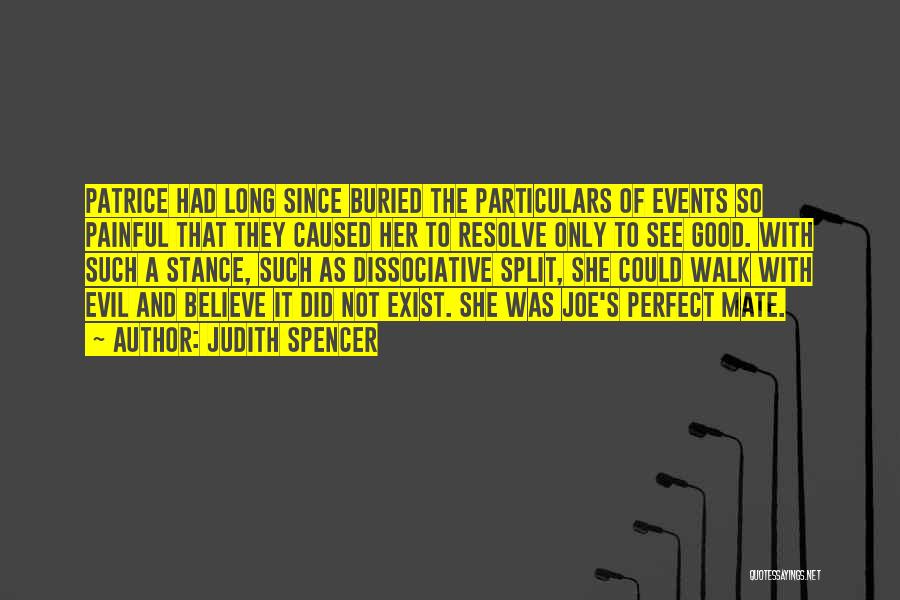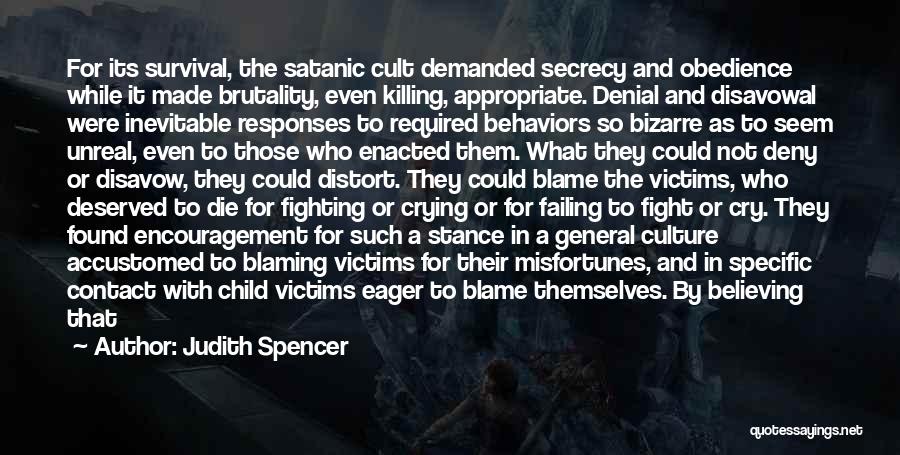Judith Spencer Quotes & Sayings
Enjoy the top 5 famous quotes, sayings and quotations by Judith Spencer.
Famous Quotes By Judith Spencer

The town was more than ready to accept the window dressing that hid the ugly truth of Joe's guilt. Some shared the secrets and kept the silence. Others would not have believed if they had been told. They would not have wanted to know. As those who saw and ignored the smoke from the crematoria of Hitler's Germany, they did not want to know that their world was not as it seemed. — Judith Spencer

No one could leave the group by his or her own volition and put the group at risk of having its secrets revealed. — Judith Spencer

Joe knew that for some, really for most, the derivations of belladonna that blurred their vision and caused their hearts to race would, as well, hasten their forgetting of detail. They would not recall, not readily, any sense of pain or shame or doubt or threat of danger.
[]
There were always children to be used. Members were obliged to offer their children, although not necessarily every child in a family was used. Some were found to be not suited for the rigor. Some were left alone so that if the involved children in a family were to attempt to tell, siblings could not corroborate their experience. — Judith Spencer

Patrice had long since buried the particulars of events so painful that they caused her to resolve only to see good. With such a stance, such as dissociative split, she could walk with evil and believe it did not exist. She was Joe's perfect mate. — Judith Spencer

For its survival, the satanic cult demanded secrecy and obedience while it made brutality, even killing, appropriate. Denial and disavowal were inevitable responses to required behaviors so bizarre as to seem unreal, even to those who enacted them. What they could not deny or disavow, they could distort. They could blame the victims, who deserved to die for fighting or crying or for failing to fight or cry. They found encouragement for such a stance in a general culture accustomed to blaming victims for their misfortunes, and in specific contact with child victims eager to blame themselves. By believing that victims had a choice when there was none, they could see victims as culpable. They could even see the deaths as right and purposeful in the nobility of sacrifice. — Judith Spencer





